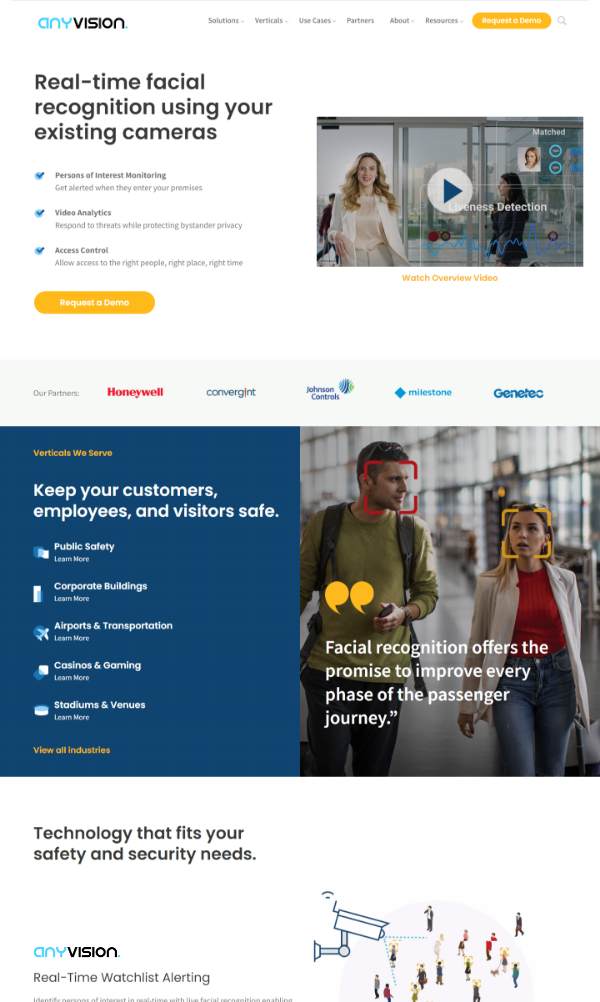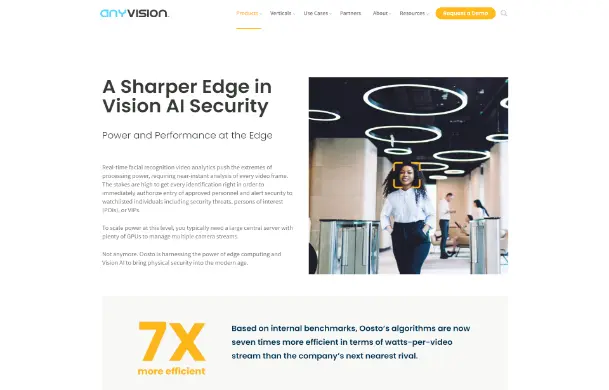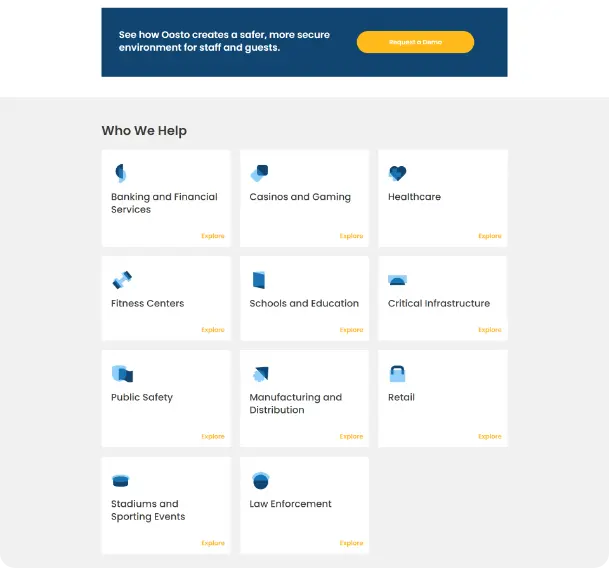
i
The rising demand for sophisticated security solutions across various sectors highlighted the need for real-time identification and verification systems. This underscored the necessity for a technology like facial recognition.
The integration of advanced facial recognition technology with existing camera systems posed a significant challenge, particularly given the varying lighting and environmental conditions these systems operate in.
Ensuring a seamless user experience was paramount. The challenge lay in developing a robust and scalable web application that could support the advanced technology and provide a smooth user interface.
The nature of facial recognition technology requires the handling and processing of vast amounts of data. Efficient and secure data management was a critical challenge to address.
With the technology being used across multiple industries worldwide, the challenge was to ensure the system's effective application in diverse global contexts.
Facial recognition technology, while powerful, has been a subject of controversy due to privacy concerns. A significant challenge was ensuring the ethical and responsible use of this technology.
The system was designed with a scalable architecture to handle high volumes of data and accommodate growth. This was achieved using cloud-based solutions and distributed systems that can scale horizontally to meet increasing demand.
The system was built using a microservices architecture, where each functionality is a separate service. This allowed for better scalability, easier debugging, and the ability to update individual services without affecting the entire system.
Advanced data processing algorithms were implemented to handle the vast amounts of data involved in facial recognition technology. This included the use of machine learning models for data analysis and pattern recognition. A robust database system was also set up for efficient data storage and retrieval.
The system was designed with a strong focus on security. This included implementing advanced encryption methods to protect data, setting up firewalls to prevent unauthorized access, and ensuring compliance with data privacy regulations.
Custom APIs were developed to integrate AnyVision's facial recognition technology with existing camera systems. This ensured seamless data flow and compatibility across different systems and devices.
A user-friendly interface was developed for the web application. This was designed to be intuitive and easy to navigate, providing users with a seamless experience..
The system was set up with continuous integration and deployment pipelines. This allowed for regular updates, quick bug fixes, and ensured the system remained up-to-date with the latest features and improvements.
The system leveraged AI and machine learning for facial recognition. This included training models to recognize and verify faces in real-time, even in different lighting and environmental conditions.
The system was designed to acquire standards-based biometric portraits. This feature allows the system to create and use high-quality facial images for recognition purposes.
AnyVision's system uses a proprietary face detection algorithm for person matching, verification, and identification. This algorithm is at the core of the system's ability to accurately recognize and verify individuals.
The system is capable of real-time identification in video streams or footage. This feature allows for immediate identification and verification, enhancing the system's effectiveness as a security tool.
The system was designed to acquire standards-based biometric portraits. This feature allows the system to create and use high-quality facial images for recognition purposes.
The system can send real-time signals when user-defined events occur. This feature enhances the system's responsiveness and allows for immediate action when necessary.


The system boasts unsurpassed accuracy and matching speed, making it a leading solution in the field of facial recognition technology.
The system can reduce redundancy by checking for duplicate personalities. This feature ensures the accuracy and efficiency of the system.
The system can perform a strong background check of prospective anti-social activists. This feature enhances the system's effectiveness as a security tool.
The system uses Highcharts JS, a modern SVG-based, multi-platform charting library. It allows for interactive charts in the web application, enhancing data visualization and user experience.
The system uses Entity Framework, a highly popular .NET ORM framework. It simplifies data access by allowing developers to work with data using domain-specific objects, eliminating the need for most data access code.
CMARIX utilized advanced web development frameworks to create a custom web application for AnyVision. This application was designed to handle high data volumes, ensuring efficient data processing and management.
CMARIX developed a seamless integration solution to incorporate AnyVision's facial recognition technology into existing camera systems. This involved creating custom APIs and utilizing advanced integration techniques to ensure compatibility and functionality in diverse environmental conditions.
CMARIX implemented robust data management solutions, including advanced database systems and efficient data processing algorithms. This ensured the system could handle the vast amounts of data involved in facial recognition technology.
CMARIX developed a strategic plan for the global deployment of the technology. This involved creating a scalable architecture that could adapt to various global contexts and requirements.
CMARIX ensured the system adhered to the highest security standards and complied with relevant data privacy regulations. This involved implementing advanced security protocols and conducting regular audits.
CMARIX provided ongoing system optimization and technical support. This involved regular system updates, performance tuning, and proactive troubleshooting to ensure the system remained efficient and effective.




A framework for building scalable, standards-based web applications using well-established design patterns and the power of ASP.NET and the .NET Framework.
A cross-platform version of .NET for building websites, services, and console apps.
A relational database management system developed by Microsoft. It is used for storing and retrieving data as requested by other software applications.
A cross-platform .Net wrapper to the OpenCV image processing library. It can be used to process, analyze, and understand images in the C# programming language.
A deep learning framework that allows developers to create artificial neural networks (ANNs) on a brewed machine image.
A JavaScript charting library that allows for interactive charts in the web application, enhancing data visualization and user experience.
A highly popular .NET ORM framework. It simplifies data access by allowing developers to work with data using domain-specific objects, eliminating the need for most data access code.
Your unique concepts will be crafted into a remarkable end result by our team.